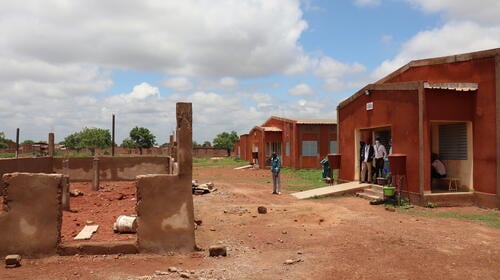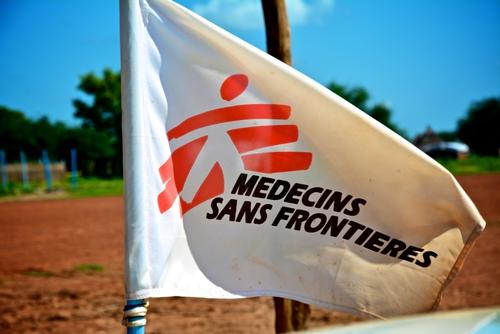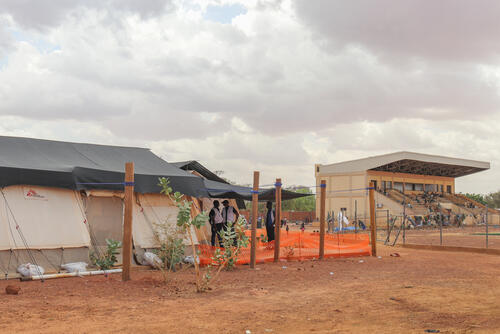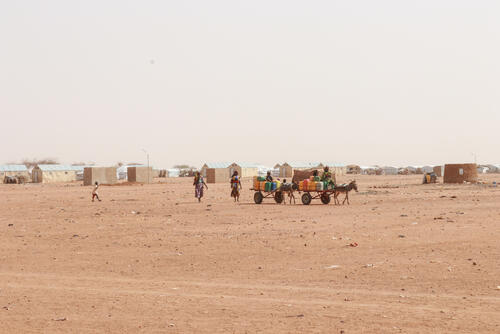“We got to Dédougou with nothing: no money, no food,” says Habi*. “Everything remained in Douroula, even our bicycles.”
Habi is at a health centre supported by Médecins Sans Frontières (MSF) in the capital of the Boucle du Mouhoun region in western Burkina Faso.
The town of Douroula, where she lived, some 20 kilometres from Dédougou, was attacked by armed men on the night of 7 to 8 July. Like many of her neighbours, Habi fled that night with her family to get her children to safety.
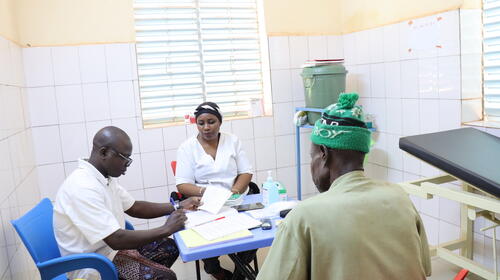
Since then, she has joined some 6,700 people who have taken refuge in Dédougou in the wake of the attacks that intensified throughout July in this region. Boucle du Mouhoun region was once considered to be less affected by the conflict and its most violent consequences than regions in the east and north of the country, the epicentre of the violence that has ravaged Burkina Faso since 2015.
Bourasso, Souma, Sa, Douroula... the list of towns in the Boucle du Mouhoun region that saw people fleeing last month under pressure from armed groups is long. Some survivors saw their loved ones killed before their eyes and reported extremely violent events.
Fear and shock are still very present, which explains why people are not returning to their villages, despite their difficult living conditions in the city and the desire to start the agricultural season.Bakary Ouedraogo, MSF project coordinator.
“Fear and shock are still very present, which explains why people are not returning to their villages, despite their difficult living conditions in the city and the desire to start the agricultural season, to return to their homes and fields,” says Bakary Ouedraogo, MSF project coordinator.
MSF has been present in the Boucle du Mouhoun region since January 2021 to provide humanitarian assistance, in partnership with the authorities.
On their arrival in Dédougou, Habi and her family first stayed in a school, then moved to the home of a relative who had been living there for a long time. Although it is hard to live with so many people in two small rooms, her main concern is food.
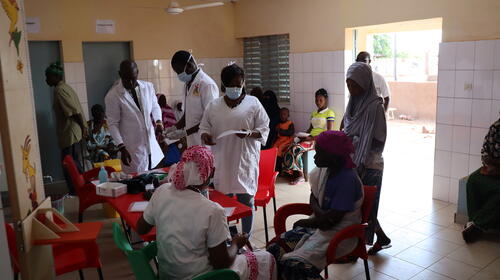
“We'll see about accommodation once our bellies are full. We have received three bags of cereals, and so far we have only one left. We are more than 30 people, supported by one family head,” says Habi. “How are we going to feed our children? On an empty stomach, we can't sleep.”
Worried, she tries to help her family and make money by washing clothes, but for the past few days she has been feeling too weak for this work. She has suffered from osteoarthritis for years and has difficulty walking. Habi visited the MSF supported health centre to receive treatment for malaria.
5,000
5,
30
3
40
4
“More than 5,000 consultations have been carried out, mostly for patients who have recently had to flee their homes,” says Bakary Ouedraogo. “As the malaria season begins in full swing, we are also working with the Ministry of Health to strengthen the care of children and adults affected by severe forms of the disease, with the opening of 40 inpatient beds at the Dédougou urban medical centre.”
Our teams also contribute to the care of patients who need to be referred to the regional hospital. Around 20 patients, as well as 10 injured people, have been referred. We also provide group sessions and individual consultations with a mental health counsellor to help people through these difficult times.
*Name changed to protect patient's privacy



